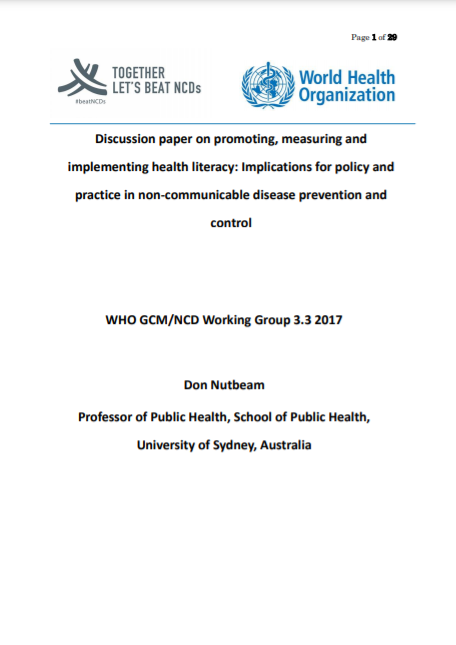
-
Source
Discussion paper on promoting, measuring and implementing health literacy: Implications for policy and practice in non-communicable disease prevention and control
The past 25 years has seen extraordinary growth in interest in health literacy. Governments in Europe, the United States and China among others have developed national strategies and targets to improve health literacy in their populations. A search in the scientific literature on the term “health literacy” in most publication databases shows negligible publications in the 1990s, rising steeply to many hundreds of papers published annually on the subject in the past few years. This surge in interest has been underpinned by debate about the definition and measurement of health literacy, numerous studies that have investigated the relationship between health literacy and a wide range of health and social outcomes, and increasingly, investment in policy and programs to improve health literacy in populations. This exceptional interest has also prompted debate about the relationship between health literacy and well-established health education.
This paper provides an overview of the key concepts and the state of the science and has been prepared as a part of the work program to support governments in the implementation of the WHO Global NCD Action Plan 2013–2020. It examines key concepts, and issues of definition and measurement, before considering approaches to improving health literacy in populations, and the implications for policy and practice in non-communicable disease (NCD) prevention and control by different stakeholders.




